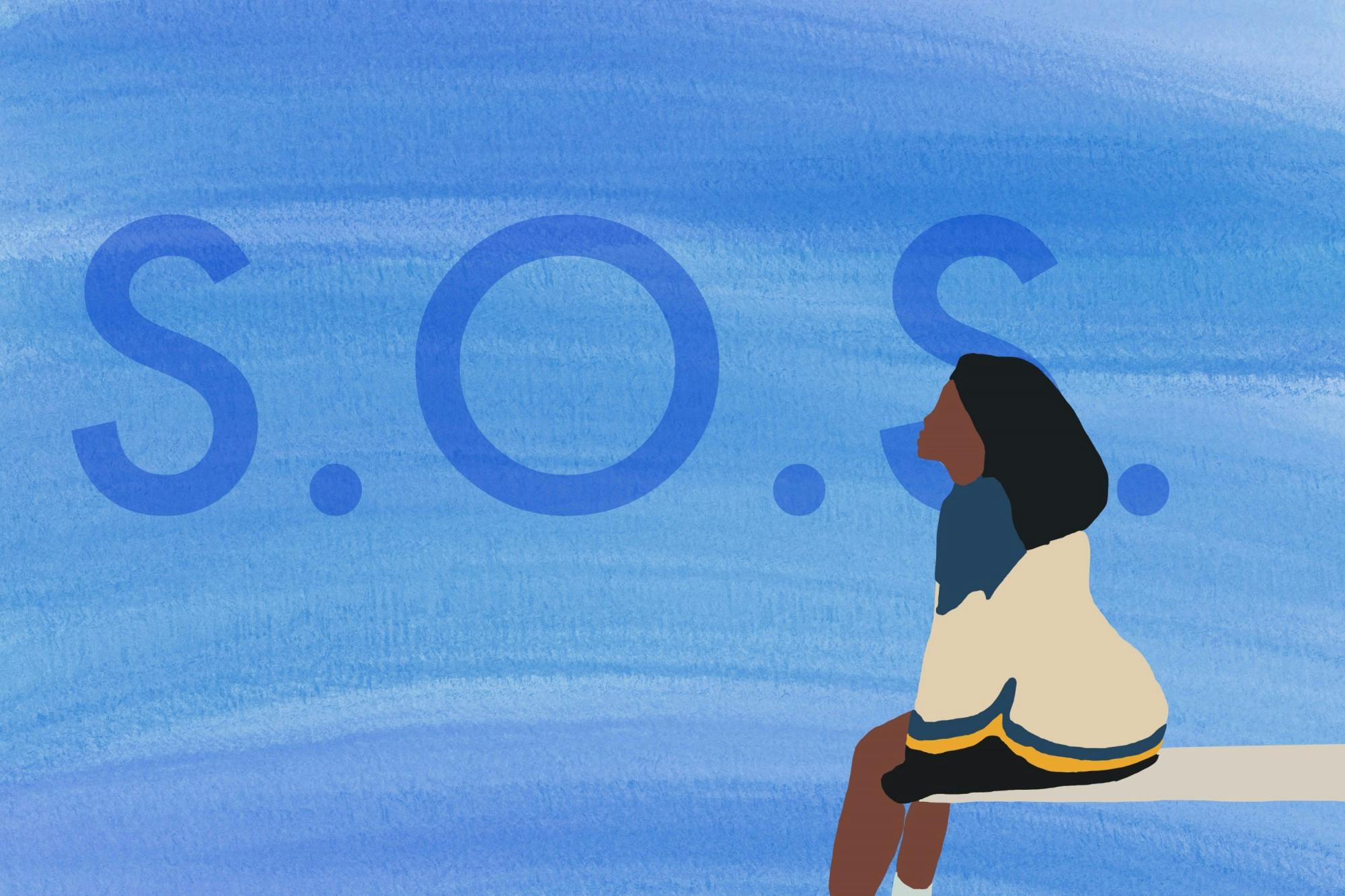If you’re planning a redemption arc that includes petty revenge, you won’t regret letting “SOS” be its soundtrack. SZA’s new album is an impressive 23 song long turmoil of love, lust, vengeance, retribution — and, ultimately, satisfaction — that begs to be played at top volume.
Five years ago, SZA dropped her freshman album, “CTRL.” The alternative R&B album received worldwide acclaim, and SZA herself was Grammy nominated for Best New Artist. And this past summer, Rolling Stone ranked “CTRL” at number 28 on its “100 Best Debut Albums of All Time” — only one place below Led Zepplen’s self-titled debut.
Fast forward to “SOS.” SZA’s sophomore album is somehow even more riveting than her acclaimed debut. Her confidence is mesmerizing to the listener as she cuts through each song with a raw, unbridled emotion.
Within the album, she alternates through pointed periods of anger and frustration and those of heartbreaking anguish, never shying away from speaking her truth. The opening song of the album, the titular “SOS,”confidently proclaims that SZA’s ex will never find someone as good as her. But, in the songs that follow, SZA enhances her storytelling and explains that this failed romance has left her more broken than she initially lets on — something much of her audience can connect to.
SZA allows us to truly feel her angst in “Nobody Gets Me,” as she alludes to her ex-lover with its chorus “How am I supposed to tell you? I don’t wanna see you with anyone but me… How am I supposed to let you go? Only like myself when I’m with you. Nobody gets me, you do.” In so concisely lingering over her own heartbreak, SZA lets her listeners take her place in the broken relationship — we are able to question ourselves and who we are to those around us. The song entrances like an acoustic ballad, though SZA sings of a romance once-had, instead of one that currently exists.
“Special” is similarly grief-stricken in topic, but varies with a melodic harmony that is reminiscent of a lullaby — albeit one that will keep you up rather than lull you to sleep. Her lyrics “I used to be special. But you made me hate me. Regret that I changed me. I hate that you made me just like you” are the ones that repeatedly run through your head late at night after a difficult breakup. For SZA, this is no different.
Within “SOS,” there are more than seven stages of grief — there are 23. Each song takes us through a different moment, with the rhythm of each song as unique as the words unraveling within it. The most unnerving yet equally captivating of the 23?: “Kill Bill.”
SZA brings up a familiar sentiment in this song: “If I can’t have you, no one should.” She is pursuing a vendetta that even Quentin Tarantino, director of the movie for which SZA’s song is a namesake, would be proud of. She answers the lingering question of “What if?” as she shifts her lyrics from “No one should” to “No one will.” She grapples with being alone with her thoughts and escapes the horror of doing so through her actions: “Rather be in jail than alone,” “Rather be in Hell than alone.” SZA’s intimate inner monologue flows out in an enticing melody for the world to see and feel as its own. “Kill Bill” amplifies both her voice and her inclination toward cold blooded revenge in a way that we can’t help but cheer for.
SZA’s transcendence across genres in “SOS” is as equally captivating as each individual work. While “CTRL” did not stray from alternative R&B, “SOS” is unbridled. Any album that has the genre ranging features of Travis Scott, Don Toliver and Phoebe Bridgers must be, right? In “SOS,” SZA is free of her man and is breaking all of the rules, including the ones of her known genre.
In theory, “SOS” as an idea is absurd. It’s a 23 song long sophomore album without a set genre whose song titles read like the drunk texts you send your ex, including “I Hate U,” “Too Late,” “Notice Me,” “Conceited” and, a personal favorite, “Smoking on my Ex Pack.” But in its intimidatingly long and unkept nature, it's also an album full of raw resentment, madness and the casualties to which these feelings lead. “SOS” is unhinged because that’s exactly what modern love and loss is — and SZA shows us that no one knows this better than herself.
The album concludes with the hip-hop track “Forgiveness” featuring Ol’ Dirty Bastard, one of the founding members of the Wu-Tang Clan. No longer do we hear SZA’s melodic and delicate emotional anguish. Instead, SZA confidently proclaims that she’s “Not in the dark anymore” and “I might forgive it, I won't forget it.” Her self-assured nature is infectious and the perfect conclusion to the album.
SZA has succeeded in creating an album that is introspective without being ostentatious. Her devastating, vicious vulnerability carries us through each track as we listen to the continuous conversation she is having with herself in the aftermath of failed romance — one that many of us have also had to grapple with. Modern love is a messy, infuriating and vengeful affair, and SZA explores all areas of the industry to accurately portray it.
If “SOS” leaves you wanting more, queue up “The Miseducation of Lauryn Hill.” Hill has won eight Grammy awards and is regarded as one of the most influential singers and rappers of her time. She conquered R&B in a way that left her fans completely infatuated with her music. Hill is a forebear to SZA, and “SOS” evokes consistent similarities to Hill’s first, and only, solo album. The pair were also neighbors in SZA’s small hometown of Maplewood, New Jersey. Growing up in the same town, I was surrounded by inspirational art and culture that I see both of these artists emulate.
Rating: ★★★★★




